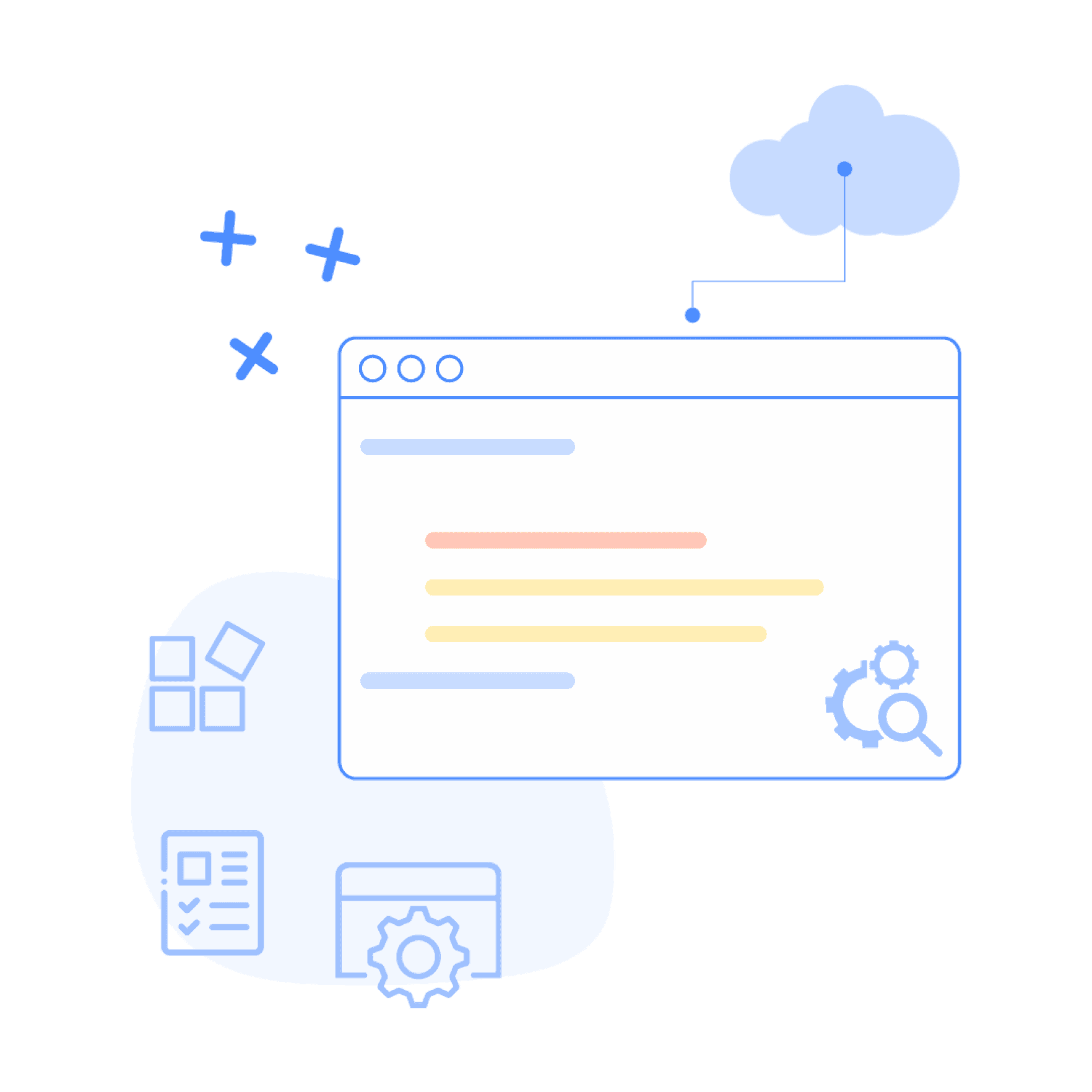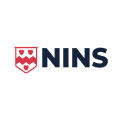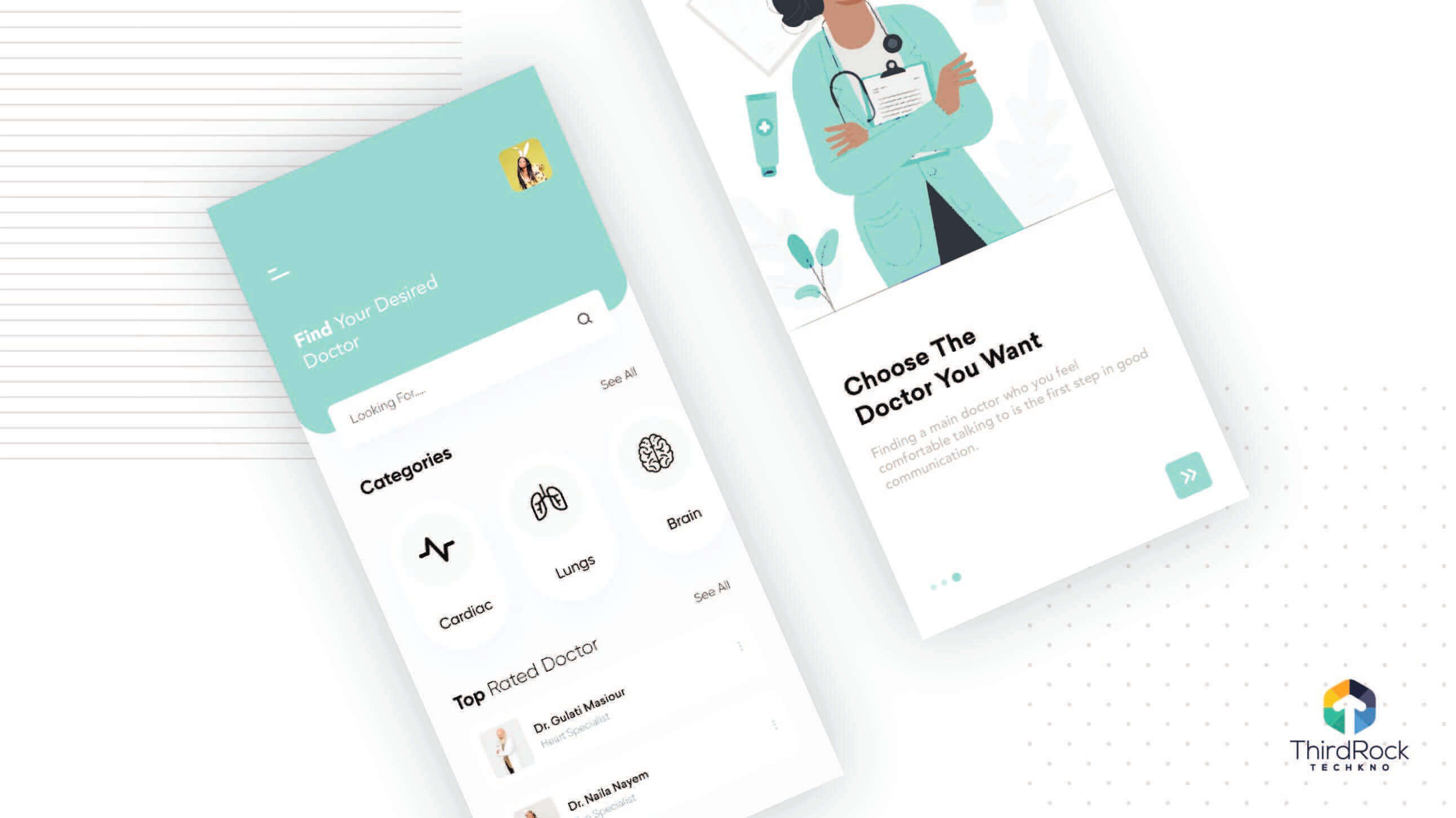WEB DEVELOPMENT
- ReactJS Development
- Angular Development
- VueJS Development
- Python Development
- Low Code Development
- .Net Development
MOBILE DEVELOPMENT
- Flutter Development
- FlutterFlow Development
- React Native Development
- IOS Development
- Android Development
- AR App Development
PRODUCT ENGINEERING
- DevOps
- DevOps Consulting
- CI/CD implementation
and management - Infrastructure as a Code
QUALITY ENGINEERING
- Software Testing
- Test Automation
- API Testing
- Microservices Testing
- Performance Testing
- Security Testing
CLOUD DEVELOPMENT
- AWS Development
- Azure Development
HIRE WEB DEVELOPER
- Hire Angular Developer
- Hire NodeJS Developer
- Hire ReactJS Developer
- Hire VueJS Developer
- Hire Python Developer
- Hire Laravel Developer
- Hire .Net Developer
HIRE MOBILE DEVELOPER
- Hire Flutter Developer
- Hire FlutterFlow Developer
- Hire React Native Developer
- Hire IOS Developer
- Hire Android Developer
- Hire AR App Developer
- Hire Ionic Developer
HIRE CLOUD DEVELOPER
- Hire AWS Developer
- Hire Azure Developer


Our Android Services
- 1. Responsive android app development
- 2. Android tablet app development
- 3. Android wear app development
- 4. Maintenance and Update app development
- 5. UI/UX app development
- 6. Custom SDK / JAR file development
- 7. 3D viewer app development
Why Choose Us As Your Android Development Company
Experienced Developers
Our highly-qualified Android Development experts specialize in building customized, creative and highly-interactive web and mobile applications. Whether you are a startup or an SME, our experts will get the job done.

Trusted Delivery Methods
We employ the agile methodology to keep you in the loop. Throughout Android development and mobile development, we focus on delivering solutions that meet your business goals, timeline, and budget.
Competitive Rates
Whether it is Android development or mobile development, we offer the most competitive rates on the market. Our personalized services meet different budget needs of our clients from across the globe.
Transparent Work Approach
Our Android development company ensures complete project visibility right from the time you approach us with your needs. We use email, phone, Skype, Slack, and other mediums for regular communication with our clients.
Customer Satisfaction
Our designers, developers, quality analysts, and a project manager – all strive for customer satisfaction. We deliver Android app development services that align with our clients’ needs.
Client Testimonials
Our WORK speaks louder than our WORD. Find out how we helped clients overcome challenges and succeed.

Smoovr
Very good communication at all stages. Always prompt to reply. Excellent quality of work. The team at Third Rock Techkno was communicative, responsive, and accommodating as they produced high-quality work.
Jonathan Wood, Smoovr
Ontime
It was a pleasure working with the TRT team. Prior to contracting this group, I had a system created that was absolutely terrible and poorly developed. I also worked with a few freelancers that couldnt cut it either. TRT was actually able to execute on our concept and have built a truly solid system for our company.

Karl Pierre, Ontime
Benefits Of Android Development
Large Audience
Android has a large user base and it can be a platform to boost your business. Android has gained huge popularity worldwide. Therefore, your product has a higher chance of success.
Custom User Interface
Android updates consist of customizable UI features. This ensures that your products have a variety of customizations that can attract a large audience and boost business.
Variety Of Devices
Android functions with a large variety of devices which make it unique in comparison to iOS devices. Android devices come in different screen sizes with different hardware options. You can also customize your hardware as it is supported by Android.
Recent Android Development Blogs

14 Crucial Android Development Tools for Making a Great App
Mobile applications have become an indispensable part of our lives, seamlessly integrating into our daily routines. Android, a renowned operating system, powers a staggering 71.94% of the global smartphone market (StatCounter, 2023), providing a vast platform for app developers to showcase their creativity and innovation. With over 2.8 million Android apps available on the Google Play Store (Android Developers, 2023), the demand for exceptional app experiences continues to grow exponentially. Creating an exceptional Android app requires a combination of technical expertise, design ingenuity, and the right tools to bring your vision to life. Choosing the appropriate development tools can streamline the process, enhance productivity by up to 20%, and ultimately contribute to crafting a remarkable app experience for users, leading to increased user engagement and app retention. Knowing how to choose the right tools for Android development can be tricky so we decided to list out some of the more important ones. 14 Best Android Development Tools The realm of Android development offers a diverse array of tools, each tailored to specific needs and skill levels. Here's a comprehensive overview of 14 essential tools that empower developers to create exceptional Android apps: Android Studio: The Ultimate IDE Android Studio stands as the cornerstone of Android development, serving as an integrated development environment (IDE) specifically designed for building Android apps. This official IDE from Google provides a comprehensive set of features, including a sophisticated code editor, debugging tools, and a visual layout editor, making it the go-to choice for both novice and experienced developers. Real-world example: Spotify, the popular music streaming service, utilizes Android Studio to develop and maintain its Android app. The IDE's powerful features and seamless integration with Google Play services have been instrumental in Spotify's success in the Android market. Pros: * Comprehensive set of features * Official IDE from Google * Active community support Cons: * Can be overwhelming for beginners * Limited debugging options for some devices * Some features may require additional plugins GameMaker Studio 2 For aspiring game developers, GameMaker Studio 2 emerges as a powerful platform to create engaging and interactive 2D games. Its drag-and-drop interface and event-based programming system simplify the development process, allowing users to focus on their creative vision without getting bogged down by complex coding. Real-world example: The popular mobile game "Alto's Odyssey" was created using GameMaker Studio 2. The tool's intuitive interface and robust features enabled the developers to bring their creative vision to life, resulting in a visually stunning and engaging game that has won numerous awards. Pros: * Easy-to-use drag-and-drop interface * Event-based programming for beginners * A large community of developers and tutorial Cons: * Limited for complex 3D games * Requires additional resources for advanced features * Limited support for some newer Android APIs Maybe read:- Top Android App Development Trends in 2021 Zoho Creator Zoho Creator presents a versatile app development platform that caters to a wide range of users, from business professionals to individuals with minimal programming expertise. Its intuitive drag-and-drop interface and pre-built templates enable users to swiftly build mobile apps without the need for extensive coding. Real-world example: Zoho Creator has been used to develop a variety of mobile apps, including a custom app for a real estate company to manage property listings and a mobile app for a non-profit organization to track volunteer hours and donations. Pros: * Intuitive drag-and-drop interface with pre-built templates. * Suitable for non-programmers and beginners. * Cloud-based platform for easy collaboration. Cons: * Limited customization options for advanced. * Not ideal for complex app development. * Limited integration with external development tools. Android Asset Studio Android Asset Studio plays a crucial role in app development by streamlining the creation of essential graphical elements, such as app icons, launcher icons, and various 9-patch images. Its user-friendly interface and comprehensive features make it an invaluable tool for crafting visually appealing and consistent app designs. Real-world example: The app development team for a popular fitness app called Nike Run Club utilized Android Asset Studio to create a consistent set of app icons and graphics that aligned with the app's overall branding and visual style. Pros: * Easy to use creates a consistent graphical element * A wide range of templates and resources are available * Integrates with Android Studio for seamless workflow Cons: * Limited to basic graphics * Not suitable for advanced graphic design * Limited support for custom image formats Genymotion Ensuring app scalability across a diverse range of Android devices can be a daunting task. Genymotion tackles this challenge by providing a virtual machine environment that allows developers to test their apps on various Android devices, from smartphones to tablets, without the need for physical hardware. Real-world example: The development team for a productivity app used Genymotion to test their app on a wide range of Android devices, ensuring that it functioned smoothly and consistently across various screen sizes and operating system versions. One of the popular apps is Evernote which utilized Genymotion to rigorously test its app on a diverse range of Android devices. Pros: * Virtual machine environment for testing on various devices. * Wide range of supported Android devices and versions. * Emulates device behaviors and sensors for realistic testing. Cons: * Requires a paid subscription. * Can be resource-intensive, especially for older computers. * Limited support for custom device configurations. Unreal Engine For developers venturing into the realm of 3D app creation, Unreal Engine stands as a powerful and versatile platform. Its advanced features and comprehensive toolset empower developers to create immersive and visually stunning 3D experiences. Real-world example: The mobile game "Fortnite" was developed using Unreal Engine. The tool's powerful graphics engine and robust features enabled the developers to create a visually stunning and engaging game that has become a global phenomenon. Pros: * Powerful graphics engine and robust features. * Suitable for creating high-quality 3D games and experiences. * Large community and extensive documentation available. Cons: * Steep learning curve, especially for beginners. * Requires a powerful computer for optimal performance. * Licensing fees for commercial projects. Vysor Vysor offers a straightforward approach to app development, enabling developers to mirror their Android device's screen onto their computer. This feature proves particularly useful for testing and debugging apps, allowing developers to make real-time adjustments and observe the app's behavior on a larger screen. Real-world example: A developer working on a social media app called Connect used Vysor to test the app's user interface and functionality on a larger screen, allowing them to identify and fix usability issues more effectively. Pros: * Simple to use and mirrors Android device screen to computer. * Free and open-source with active community support. * Useful for quick testing and demonstration purposes. Cons: * Limited to basic testing and debugging. * Requires an additional connection cable or wireless setup. * Not suitable for in-depth app development and debugging. Sourcetree Sourcetree simplifies the management of app repositories, providing a user-friendly graphical interface for working with Git, a popular version control system. Its intuitive features make it easier for developers to track changes, collaborate with team members, and maintain a streamlined development workflow. Real-world example: The development team for a popular e-commerce app called Shoppe uses Sourcetree to manage their app's codebase. The tool's visual representation of code changes and its branching and merging capabilities have streamlined the team's development process and enhanced their collaboration. Pros: * User-friendly graphical interface for Git. * Streamlined workflow for managing code repositories. * Cross-platform compatibility for working on various devices. Cons: * Limited features compared to paid alternatives. * Not as powerful for advanced Git operations. * Lack of integration with some development environments. IntelliJ IDEA IntelliJ IDEA caters to advanced developers seeking a robust and feature-rich IDE. Its extensive code editing and analysis capabilities, coupled with its customizable plugins, make it a powerful tool for building sophisticated Android apps. Real-world example: The development team for a complex Android finance app called FinWell utilized IntelliJ IDEA to develop the app's intricate financial calculations and data management features. The IDE's powerful code analysis and debugging tools enabled the developers to ensure the app's accuracy and stability. Pros: * Extensive code editing and analysis capabilities. * Customizable plugins for various developments. * Support multiple programming languages and frameworks. Cons: * Requires a paid subscription. * The steep learning curve for beginners. * Can be resource-intensive on older computers. LeakCanary Memory leaks can pose significant challenges for Android app performance. LeakCanary emerges as a valuable tool to detect and identify memory leaks, enabling developers to proactively resolve issues and ensure a smooth app experience for users. Real-world example: A developer working on a news app called NewsFlash which uses LeakCanary to identify memory leaks that were causing the app to crash unexpectedly. By addressing these leaks, the developer was able to improve the app's performance and stability. Pros: * Detects and identifies memory leaks * Free and open-source with active community support * Easy to integrate into existing Android projects Cons: * Limited to memory leak detection * Not as comprehensive as paid memory * Limited debugging options for memory leaks Also read:- 12 Best Android App Development Frameworks Visual Studio – Xamarin Visual Studio – Xamarin provides a platform for creating native Android apps, utilizing the familiar C# programming language. This tool proves particularly beneficial for developers with experience in C# and .NET, allowing them to leverage their existing expertise to build Android apps. Real-world example: The development team for a popular cross-platform app called LinguaLearn which uses Visual Studio – Xamarin to create the Android version of their app. The tool's familiarity and code reusability enabled the team to develop the app efficiently and maintain a consistent codebase across different platforms. Pros: * Familiar with C# programming language for .NET developers. * Cross-platform development for Android and IOS. * Extensive documentation and community support are available. Cons: * Requires a paid subscription. * The steep learning curve for non-C# developers. * Limited integration with some Android-specific features. Eclipse IDE Eclipse IDE, a popular IDE for Java development, also offers support for Android app development. Its extensive plugin ecosystem and flexible customization options make it a versatile choice for developers seeking a highly configurable development environment. Real-world example: The development team for an open-source Android app called Shareit which uses Eclipse IDE to build the app's core functionality. The IDE's extensive plugins and integration with various development tools enabled the team to customize the development environment to their specific needs. Pros: * Extensive plugin ecosystem and flexible customization options. * Suitable for experienced developers with Java programming skills. * Large community and extensive documentation are available. Cons: * Slow and resource-intensive on an older computer. * Not as user-friendly for beginners. * Limited support for newer Android APIs and tools. DeuterIDE For developers on the go, DeuterIDE presents a lightweight and portable IDE specifically designed for Android app development. Its streamlined interface and efficient coding tools make it suitable for working on Android projects from anywhere. Real-world example: A mobile app called Sarah developer used DeuterIDE to work on an Android app prototype while traveling. The IDE's portability and offline functionality allowed the developer to continue making progress on the project without requiring a dedicated development environment. Pros: * Lightweight and portable for working on the go. * Efficient coding tools and drag-and-drop interface. * Suitable for beginners and hobbyists. Cons: * Limited features compared to full-fledged IDEs. * Not as suitable for complex app development. * Lack of support for some advanced features. B4A B4A, or Basic4Android, offers an alternative to Java programming, enabling developers to create Android apps using the familiar Basic programming language. Its simplified syntax and drag-and-drop interface make it accessible to developers with limited coding experience. Real-world example: B4A has been used to develop a variety of Android apps, including a simple note-taking app and a mobile game for children called LinguaLearn. The tool's ease of use and intuitive interface have made it a popular choice for beginners and non-programmers seeking to enter the Android app development realm. Pros: * Simplified syntax and drag-and-drop interface. * Suitable for non-programmers and beginners. * Free and open-source. Cons: * Limited to basic apps. * Not as powerful as other Android development tools. * Limited support for newer Android APIs and tools. Choosing the Perfect Tool for Your Android App Development Navigating the vast array of Android development tools can be overwhelming, but selecting the right tools is crucial for optimizing your development process and achieving your desired app outcomes. Consider these key factors when making your decision: * Project Requirements: Assess the specific needs of your app, including its features, complexity, and target audience. This will help narrow down your tool options to those that align with your project's specific demands. * Skill Level: Evaluate your own programming proficiency and experience level. Some tools cater to beginners, while others are geared towards more experienced developers. Choose tools that match your current skill set and allow for growth as your expertise develops. * Budget: Consider the financial constraints of your project. Some tools are free and open-source, while others require licensing fees. Carefully evaluate the cost-benefit ratio of each tool to make an informed decision. * Community Support: A vibrant and active community around a particular tool can provide invaluable assistance and guidance throughout your development journey. Look for tools that have a strong online presence and offer forums Essential Factors to Consider in Android Development Tools The realm of Android development offers a diverse range of tools, each tailored to specific needs and skill levels. By carefully assessing your project requirements, evaluating your skill set, and considering the available support resources, you can select the right tools to streamline your development process, enhance productivity, and ultimately create exceptional Android apps that captivate users. We, at Third Rock Techkno, offer dedicated Android app development solutions for ensuring a high-quality market-driven product development that can cater to your business goals efficiently. Check out our portfolio and drop us a line to get started today! FAQs Why is Android Studio mentioned as the top tool for Android application development? Android Studio stands as the top tool for Android application development due to its official backing from Google, its comprehensive feature set, and its user-friendly interface. It provides a seamless development environment that caters to both novice and experienced developers, making it the go-to choice for building Android apps. What are Android SDK tools and ADT? The Android SDK (Software Development Kit) is a collection of tools and APIs that enable developers to create Android apps. It includes essential components such as the Android Debug Bridge (ADB), which facilitates communication between a computer and an Android device, and the Android Virtual Device (AVD), which allows developers to simulate various Android devices without the need for physical hardware. How do I choose the right Android development tool for my project? Choosing the right Android development tool involves assessing your project's specific needs, evaluating your skill set, and considering budget constraints. Carefully analyze the features and capabilities of each tool for your project requirements. Additionally, factor in the level of community support, as a vibrant online community can provide valuable assistance and guidance throughout your development journey. What makes Genymotion a valuable tool for Android app development? Genymotion proves valuable for Android app development by providing a virtual machine environment that allows developers to test their apps on a diverse range of Android devices without the need for physical hardware. With support for various devices and Android versions, Genymotion ensures app scalability, helping developers identify and address compatibility issues across different screen sizes and operating system versions. Why is IntelliJ IDEA recommended for advanced Android developers? IntelliJ IDEA is recommended for advanced Android developers due to its extensive code editing and analysis capabilities, customizable plugins, and support for multiple programming languages and frameworks. While it may have a steeper learning curve, it offers a robust IDE environment for intricate tasks such as financial calculations and data management in complex Android apps. The tool's powerful code analysis and debugging tools contribute to ensuring the accuracy and stability of advanced Android projects.

8 Vue.js Development Tools for 2024
Choosing the right tools can significantly impact your productivity, efficiency, and overall project success. Vue.js, a progressive JavaScript framework, has gained immense popularity due to its simplicity, flexibility, and performance. To fully harness the power of Vue.js and create exceptional web applications, developers rely on a diverse range of tools that enhance their workflow and streamline the development process. 8 Best Vue Development Tools to Know About Bit Bit (Vue.js) revolutionizes Vue.js development by introducing a component-centric approach. It allows developers to create, manage, and share reusable Vue.js components in a modular and organized manner. By focusing on components as the building blocks of applications, Bit simplifies the development process, promotes code reusability, and enhances maintainability. Key Features: * Component-based development * Component sharing and collaboration * Automated dependency management Vite Vite (Vue.js) stands out as a lightning-fast development tool for Vue.js applications. It leverages a pre-bundling technique and a native ESM resolver to deliver an unparalleled development experience. Vite significantly reduces build times, hot module replacement speeds, and initial page load times, allowing developers to work more efficiently and build performant applications. Standout Features: * Pre-bundling for faster development * Native ESM resolver for efficient module resolution * Excellent hot module replacement performance Pinia Pinia (Vue.js) simplifies state management in Vue.js applications by providing a lightweight, reactive, and easy-to-use state management library. It replaces Vuex, the previous state management solution, with a more intuitive and performant approach. Pinia's simple API and reactivity make it easier for developers to manage application state, reducing boilerplate code and improving code maintainability. Benefits: * Lightweight and performant * Intuitive API * Reactive state management Vue.js Devtools Vue.js Devtools is an essential tool for debugging and optimizing Vue.js applications. It provides a comprehensive set of features for inspecting component data, analyzing application performance, and identifying potential issues. Vue.js Devtools seamlessly integrates with the browser's developer tools, making it easy for developers to troubleshoot and refine their Vue.js applications. Unique Features: * Component data inspection * Performance analysis * Issue identification and resolution Vitest Vitest (Vue.js) emerges as a powerful testing tool specifically designed for Vue.js applications. It leverages a Vite-powered test runner that delivers exceptional performance and flexibility. Vitest enables developers to write comprehensive unit, integration, and end-to-end tests for their Vue.js applications, ensuring code quality and reliability. Testing Capabilities: * Unit testing * Integration testing * End-to-end testing NativeScript NativeScript (Vue.js) empowers developers to build cross-platform mobile applications using Vue.js. It provides a native wrapper around Vue.js, allowing developers to leverage their Vue.js expertise to create native iOS and Android applications. NativeScript eliminates the need to learn separate mobile development frameworks, making it a cost-effective and efficient solution for cross-platform mobile development. Key Features for Mobile Development: * Cross-platform mobile development with Vue.js * Native performance and capabilities * Familiar Vue.js development environment Vant Vant (Vue.js) is a mobile UI component library specifically tailored for Vue.js. It offers a rich collection of pre-styled and responsive mobile components, making it easier to create beautiful and user-friendly mobile interfaces. Vant's components are optimized for performance and accessibility, ensuring a seamless mobile user experience. Role in Creating Responsive Mobile Interfaces: * A rich collection of pre-styled mobile components * Responsive and performant components * Accessibility considerations Vue Router Vue Router serves as the official Vue.js router library for building single-page applications (SPAs). It provides a powerful and intuitive API for defining routes, handling navigation, and managing URL state. Vue Router seamlessly integrates with Vue.js components, making it easy to create SPAs with dynamic routing and a smooth user experience. Features for Navigation and Routing: * Powerful and intuitive routing API * Seamless integration with Vue.js components * Dynamic routing and URL state management Also read:- Vuejs vs React in 2021: Who Will Win The Battle? Web Development Success with Vue.js Tools Vue.js has emerged as a powerful and versatile JavaScript framework that has gained immense popularity among web developers. Its simplicity, flexibility, and performance make it an ideal choice for building a wide range of web applications, from single-page applications (SPAs) to cross-platform mobile apps. By utilizing the extensive ecosystem of Vue.js tools, developers can streamline their workflow, enhance their productivity, and create exceptional web applications. Whether you are a seasoned JavaScript developer or just starting out, Vue.js offers a rewarding and exciting journey into the world of web development. We, at Third Rock Techkno, offer dedicated development solutions for ensuring a high-quality market-driven product development that can cater to your business goals efficiently. Check out our portfolio and drop us a line to get started today! FAQs 1. What build tool does Vue use? Vue uses Vue CLI (Command Line Interface) as its default build tool, providing a scaffold for projects and handling tasks like bundling and linting. 2. Best IDE for Vue development? Popular IDEs for Vue development include Visual Studio Code, WebStorm, and IntelliJ IDEA. Choose based on preferences, workflow needs, and familiarity with the tool. 3. How to start Vue coding? To start Vue coding, install Node.js, set up a Vue.js environment with Vue CLI, learn basics from documentation, and build a simple Vue.js application. Explore tutorials, courses, and community forums for additional support. 4. Can Vue.js be used for cross-platform mobile apps? Yes, Vue.js is suitable for cross-platform mobile app development with frameworks like NativeScript (Vue.js), leveraging Vue.js expertise for native iOS and Android apps. 5. What are the benefits of Vue Router in Vue.js development? Vue Router, the official Vue.js router library, offers a powerful API for routes, navigation, and URL state management. It seamlessly integrates with Vue.js components, simplifying SPA creation with dynamic routing and a smooth user experience.

Why Is React Native the Way Forward for Start-ups?
Blog summary: Are you building a startup and need to choose the best app development framework? Then React Native is definitely the most suitable option to go for. Wondering how? Well, read on, as covered in detail in this blog - * What is React Native? * The top benefits of React Native app development for your startup * Why should you opt for custom React Native app development for your startup? * Custom React Native app development cost for startups React Native app development has garnered wide popularity for decades and to start with some great examples, the leading apps like Facebook Ads, Instagram, Walmart, UberEats, and Airbnb are all built on React Native, to name a few! React Native comes with exclusive perks like - 👉High code reusability 👉Better app quality 👉Live reloading 👉Competitive performance in mobile environments 👉Modular architecture And many more! No wonder it’s still one of the top choices for developers as well as startups as it doesn’t require heavy investments provided you choose the right React Native app development company. Over 42% of the developers prefer React Native for app development and building apps for startups contributes significantly to it! If you too have a startup and requirement for building a market-leading app within budget, then this blog is for you. Here we are going to discuss in detail why React Native app development is the best option for startups. What Is React Native? React Native is a framework for building mobile apps using JavaScript and React. It allows developers to create apps that run on both iOS and Android platforms using the same codebase. Source The React Native framework utilizes native components rather than web components, which provides a more seamless and performant experience for users. Additionally, React Native allows for easy integration with other native features, such as camera and GPS. React Native was developed by Facebook and released in 2015, and since then it has been widely adopted by many companies and developers for mobile app development. See More: Outsourcing Software Development for Startups: Benefits and More Looking for the right software development company to partner with? With over more than 10 years of experience in software development, we, at Third Rock Techkno, offer a broad range of software development services and solutions. Our expert professionals not only ensure timely project completion and product launch within budget, but also help your product find the right market positioning and help you grow to meet your business goals. Get in touch with us for free consultation! Get Free Consultation Now The Top Benefits of React Native App Development for Your Startup source React Native offers a range of exclusive benefits which make it one of the top choices among developers as well as startups such as - 1. Cross-Platform Compatibility One of the major advantages of React Native is that it allows developers to create apps that run on both iOS and Android platforms using the same codebase. This eliminates the need for separate development teams and reduces the overall development time. Additionally, React Native app development services provided by a professional React Native app development company can help you to create a fully customized app that looks and feels like a native app on both iOS and Android platforms and comes with tailored features as per your requirements. 2. Faster Development React Native uses a virtual DOM which improves the performance of the app. This allows developers to make changes and see them in real time, which speeds up the development process. Furthermore, React Native app development services offered by a React Native app development company can help speed up the development process further to meet your deadlines while optimizing the time and resources spent at the same time. view react native development services 3. Cost-effective React Native is an open-source platform, which means that there are no licensing costs. Additionally, cross-platform development reduces the overall development cost, making it a cost-effective option for businesses. 4. Improved User Experience React Native uses native components rather than web components, which provides a more seamless and enhanced experience for users. This can lead to higher user engagement and retention, which is critical for the success of any business. 5. Access to Native APIs React Native allows for easy integration with other native features, such as camera and GPS, which can provide a better user experience. A React Native app development company can help you to integrate your app with your preferred set of native APIs to provide additional functionality and competitive advantages to your app. 6. Easy to Maintain React Native has a large and active community, which means that many common issues have already been addressed and solutions are readily available. For any technical assistance, troubleshooting, issues, and queries, you have a wide pool of resources and active community support for resolving them quickly. 7. Scalability React Native is a highly scalable framework, which means that it can easily accommodate future growth and expansion. This is especially important for businesses that are looking to scale their app in the future or for the growing startups. view react native development services See More: Stages of Startup Development: A Complete Guide React Native App Development Cost for startups React Native app development is a cost-effective solution for startups looking to build their mobile app. When it comes to region-wise costs, North America and Europe tend to have higher rates for React Native app development services compared to other regions. However, the cost of React Native app development in APAC, particularly India, is significantly lower while still maintaining high-quality development solutions. ✅In North America, the cost of hiring a React Native app development company can range from $1000 to $250 per hour, with an average cost of around $150 per hour. For a basic React Native app development project, the cost can range from $30,000 to $80,000. While more complex projects can cost upwards of $150,000. ✅In Europe, the cost of React Native app development services can range from $70 to $200 per hour, with an average cost of around $100 per hour. For a basic React Native app development project, the cost can range from $20,000 to $60,000. While more complex projects can cost upwards of $100,000. It's worth noting that the cost of React Native app development in North America and Europe can vary depending on the location, with cities such as San Francisco, New York, and London having higher hourly rates compared to other areas. ✅In India, there are many React Native app development companies that offer cost-effective solutions for startups. These companies have a team of experienced developers who have a deep understanding of React Native and can create high-quality mobile apps at a fraction of the cost compared to other regions. The cost of hiring a React Native app development company in India can range from $15 to $50 per hour on an average depending on the complexity of the project. Startups need to factor in ongoing maintenance and updates to keep the app running smoothly. A React Native app development company can help with this by offering ongoing support and maintenance services at a nominal additional cost. No matter whether your startup is just at the initial stage or is scaling fast, opting for a custom React Native app development solution can help you develop a fully-featured app that accommodates your every requirement and caters to your business goals efficiently. Furthermore, it can offer you competitive advantages in the present market. We, at Third Rock Techkno, offer a dedicated React Native app development solution that can help you reach your every startup goal while letting you beat the fierce competition. Check out our portfolio and drop us a line to get started today. FAQs 1. What is React Native app development? React Native is an open-source framework that allows developers to build mobile apps using JavaScript and React. It allows for the development of cross-platform apps for both iOS and Android, reducing the need for separate development teams for each platform. This makes it an attractive option for startups looking to build their mobile app. 2. How does React Native app development cost compare to traditional app development methods? React Native app development is generally considered to be more cost-effective than traditional app development methods. This is because it eliminates the need for separate development teams for iOS and Android, reducing the overall development cost. Additionally, React Native app development is known for its faster development time, which can also help to reduce costs. 3. What are the benefits of using a React Native app development company for my startup? Using a React Native app development company can provide many benefits for startups, such as access to experienced developers with a deep understanding of React Native and the ability to create high-quality mobile apps at a fraction of the cost compared to other regions. Additionally, React Native app development companies can also offer ongoing support and maintenance services to keep the app running smoothly. 4. What factors determine the final cost of React Native app development for my startup? The final cost of React Native app development for a startup will depend on several factors, such as the complexity of the project, the number of features, and the duration of the project. Furthermore, the cost of React Native app development can also vary depending on the location and experience of the development team. Startups should also factor in ongoing maintenance and updates costs which can add up to the final cost.
Get the exact time and cost estimation of your project
Our business consultants and industry strategists will devise just the right scoping document to meet your unique project needs.
Schedule A Discovery Session











